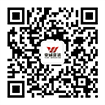

元器件交易网讯 5月20日消息,据外媒报道,美国司法部长埃里克•霍尔德周一说,宾夕法尼亚州美国陪审团起诉5名中国军方官员涉及31项网络间谍活动。
这五个被起诉人是是中国人民解放军的成员,以下名字为音译:王东(Wang Dong)、孙凯良(Sun Kailiang)、文新宇(Wen Xinyu)、黄振宇(Huang Zhenyu)与顾春晖(Gu chunhui)。
他们针对五家美国公司和一个美国工会进行黑客活动。西屋电气公司、(Westinghouse Electric Co.)、光伏组件制造商SolarWorld、美国钢铁公司、美国特种金属制造商Allegheny Technologies以及美国钢铁工人联合会和美国铝公司。
大型陪审团总共指控他们31项非法行为。所有的指控如下所示:
一项密谋计算机欺诈和滥用,这个判最高刑罚10年监禁。
八次访问或试图访问一个受保护的计算机,为商业利益和私人经济利益而擅自获取信息。每一次最多判5年监禁。
14次传输程序、信息、代码和命令意图破坏受保护电脑。每一次行为最多判刑10年。
6次身份盗用,每一次最多判连续2年监禁。
一次经济间谍活动,最高判刑15年监禁。
一次商业秘密盗窃,最高判10年监禁。
霍尔德周一称,“商业秘密的范围和其他敏感商业信息被盗,意义重大,要坚决打击。”
“全球市场的成功应该完全基于公司的创新能力和竞争力,而不是依靠靠政府监听和窃取商业秘密的能力。政府不会容忍任何国家试图非法损害美国公司,破坏自由市场公平竞争的完整性。”
下面是进一步解析涉嫌针对个别公司和工会的一些犯罪行为。
西屋电气——2010年,西屋在中国建造四个电力厂,孙涉嫌窃取管道、管道结构和管道路由的机密、专有技术和设计规范。
SolarWorld——2012年,被告人温和其它人涉嫌盗取“成千上万的文件包括SolarWorld现金流动、生产指标、生产线信息、成本和特权委托服务通信正在进行的贸易诉讼等相关信息。
美国钢铁——被告孙称,在该公司与中国钢铁企业贸易案期间,发送钓鱼邮件给美国钢铁公司员工。在美国钢铁公司电脑安装恶意软件之后,王称窃取了美国钢铁计算机主机名和说明书。
ATI——2012年,被告人温在ATI公司卷入与中国国有企业的公共贸易争端时,他窃取“几乎所有ATI员工”网络凭据。
美国钢铁工人联合会——2012年,温从美国钢铁工人联合会高级员工处窃取邮件和其它敏感文件。当时美国钢铁工人联合会与至少两个地区的中国国有企业存在公共贸易争端。
美国铝公司—被告人孙在此前该公司宣布与中国公司合作大约三个星期后,涉嫌向美国铝业发送钓鱼电子邮件。大约四个月后,不明身份的人从美国铝业的电脑盗取了成千上万的电子邮件和附件。联邦调查局还发布了所称的黑客照片,现在包括美国联邦调查局头号通缉犯名单:



(元器件交易网董蕾 译)
外媒原文如下:
A U.S. grand jury in Pennsylvania indicted five Chinese military officials on 31 counts involving cyber espionage, Attorney
The indictment named five defendants who were part of the Chinese People's Liberation Army — Wang Dong, Sun Kailiang, Wen Xinyu, Huang Zhenyu, and Gu Chunhui.
They targeted five U.S. companies and one U.S. labor union as part of their hacking — Westinghouse Electric Co. (Westinghouse), U.S. subsidiaries of SolarWorld AG (SolarWorld), United States Steel Corp. (U.S. Steel), Allegheny Technologies Inc. (ATI), the United Steel, Paper and Forestry, Rubber, Manufacturing, Energy, Allied Industrial and Service Workers International Union (USW) and Alcoa Inc.
The grand jury brought 31 counts in total. All defendants were charged in all counts:
• One count of conspiring to commit computer fraud and abuse. This count carries a maximum penalty of 10 years in prison.
• Eight counts of accessing (or attempting to access) a protected computer without authorization to obtain information for the purpose of commercial advantage and private financial gain. These counts each carry a maximum of five years in prison.
• 14 counts of transmitting a program, information, code, or command with the intent to cause damage to protected computers. Each count carries a maximum of 10 years in prison.
• Six counts of aggravated identity theft. Each carries a maximum of two consecutive years in prison.
• One count of economic espionage, which carries a maximum penalty of 15 years in prison.
• One count of trade secret theft, which carries a maximum penalty of 10 years in prison.
"The range of trade secrets and other sensitive business information stolen in this case is significant and demands an aggressive response," Holder said Monday.
"Success in the global marketplace should be based solely on a company’s ability to innovate and compete, not on a sponsor government’s ability to spy and steal business secrets. This administration will not tolerate actions by any nation that seeks to illegally sabotage American companies and undermine the integrity of fair competition in the operation of the free market."
Here's a breakdown of some of the criminal conduct alleged against the individual companies and labor union:
• Westinghouse — In 2010, while Westinghouse was building four power plants in China, the defendant Sun allegedly stole confidential and proprietary technical and design specifications for pipes, pipe supports, and pipe routing.
• SolarWorld — In 2012, the defendant Wen and others allegedly stole "thousands of files including information about SolarWorld’s cash flow, manufacturing metrics, production line information, costs, and privileged attorney-client communications relating to ongoing trade litigation, among other things." The Justice Department said this would have theoretically enabled a Chinese competitor to gain an advantage and target SolarWorld on multiple angles.
• U.S. Steel — The defendant Sun allegedly sent phishing emails to U.S. Steel employees while the company was participating in trade cases with Chinese steel companies. After the resulting malware was installed on the U.S. Steel computers, Wang allegedly stole hostnames and descriptions of U.S. Steel computers.
• ATI — The defendant Wen allegedly stole network credentials for "virtually every ATI employee" in 2012, when the company was involved in a public trade dispute with a China state-owned enterprise.
• USW — Also in 2012, Wen allegedly stole emails and other sensitive documents from senior USW employees, at the time USW was involved in public trade disputes with Chinese state-owned enterprises in at least two areas.
• Alcoa — The defendant Sun allegedly sent a phishing email to Alcoa addresses about three weeks after the company announced a partnership with a Chinese company. About four months later, unidentified individuals stole thousands of e-mail messages and attachments from Alcoa’s computers.
The FBI also released photos of the alleged hackers, who are now included on the FBI's Most Wanted list of cyber targets:
关注我们

公众号:china_tp
微信名称:亚威资讯
显示行业顶级新媒体
扫一扫即可关注我们